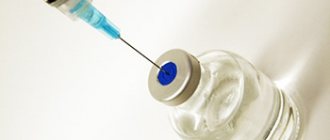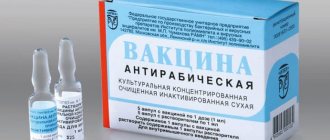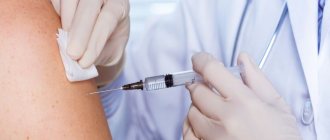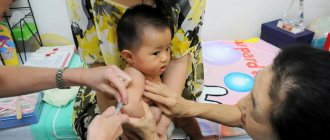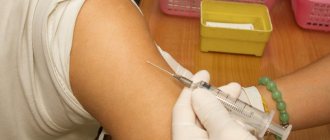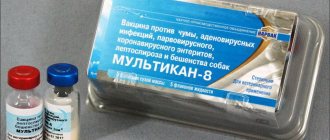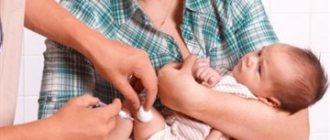Why is HPV dangerous, and why do you need to be vaccinated against it?
Papillomavirus is one of the most common sexually transmitted diseases, from which even the use of barrier methods of contraception does not protect 100%. It is believed that up to 80% of the world's population are carriers of this virus at one time or another in their lives.
No cure has yet been invented against it, but there is good news - in most cases, within two years after the moment of infection, the virus goes away on its own, often asymptomatically. The exception is those types of HPV that cause the appearance of papillomas or warts. They are easy to remove, but no one can guarantee that they will not appear again. And the most dangerous are viruses of types 16 and 18, which cause cervical cancer in women and other types of oncology of the genital organs, mouth and pharynx in both sexes.
Therefore, the invention of a vaccine against the most dangerous strains of HPV was a real breakthrough. It prevents 90% of cases of cancer of the cervix, vulva, anus, penis, and oropharynx.
Contraindications and complications
The main contraindications for the use of vaccines are an allergic reaction to the drug after the first intramuscular injection, as well as the patient’s pregnancy. Although there is no information on the effects of anti-HPV drugs on the fetus, doctors recommend against vaccination during pregnancy.
As with all other types of vaccines, the administration of drugs against human papillomavirus infection is contraindicated during periods of exacerbation of chronic diseases or the presence of other infectious diseases. In the presence of chronic diseases, vaccination against papillomavirus is carried out during the period of remission, and in case of infectious diseases - after they are completely cured.
Like any type of vaccine, prophylactic drugs against human papillomavirus can cause the following complications during and after vaccination:
- a natural reaction of the body’s immune system to the introduction of HPV protein, which is manifested by skin hyperemia and inflammation at the injection site;
- the injection site hurts, itches, and is hard;
- general malaise;
- temperature increase;
- weakness to the point of fainting.
Symptoms of the body's natural immune response usually last no more than 2-3 days and are easily tolerated without the use of medications. If the temperature rises significantly (over 38 degrees), you can take antipyretic medications to relieve the discomfort.
In patients susceptible to allergies, prophylaxis with antihistamines is carried out before vaccination.
Often, when vaccinated with any drug, allergic reactions occur that the patient has never experienced before. Severe complications such as anaphylactic shock or Quincke's edema usually occur during or immediately after administration of the drug. To eliminate them, appropriate means must be available in the manipulation room.
Will vaccination be effective if I am over 27 years old?
Until recently, vaccination was not prescribed after 27 years of age, but not because it could negatively affect the body. The thing is that its effectiveness at this age has not been proven. That is, it was believed that by the age of 28 a person had already become familiar with the virus in one way or another, and there was no point in vaccination.
However, in 2021, the Food and Drug Administration (USA) approved vaccination against the papilloma virus for men and women over 27 years of age. The experience of Australia is also impressive, where they vaccinate all minors under 19 for free and recommend that all adults do it themselves at their own expense. Scientists believe that thanks to such universal vaccination, the number of cervical cancers will drop to 400 cases per year within 10 years, and after 50 years, the problem will be almost completely overcome.
So if you are over 27 years old and sexually active, the HPV vaccine is still an effective cancer prevention method.
Principles and purposes of vaccination
Cervical cancer, which is caused by the human papillomavirus, is the fourth most common cancer in women worldwide and accounts for 7.5% of all cancer deaths in women. Currently, there are no effective and proven treatments for HPV infection, so the only way to prevent it is vaccination.
Currently, HPV vaccines are actively used in many countries around the world. In a number of foreign countries, vaccination against HPV is included in the National Immunization Programs. In the USA, vaccination is carried out among all girls aged 11-12 years, in France - at 11 years, in Germany - at 12-17 years, in Austria - at the age of 9-17 years. World experience in the use of these vaccines for several years has shown their safety and high preventive effectiveness.
The vaccination is done three times. The interval between the first and second is two months, between the second and third is four months. But you can also do it according to a more dense scheme: the second - a month later and the third - two months after the second.
If pregnancy occurs, the third dose of the vaccine is postponed until the postpartum period. If all three vaccinations have been completed within 12 months, the vaccination is successful and complete.
Will the vaccine help if the virus is already in the body?
According to the latest research from the National Cancer Institute in the United States, if a person is already infected with HPV, the vaccine will protect him from all other types of the virus. And if self-healing occurs, it will prevent re-infection. That is, the vaccine, unfortunately, will not be able to cure you of an existing infection, but will reduce the risk of cancer.
This is why experts do not even recommend getting tested for HPV before vaccination, since the test result does not affect the advisability of vaccination.
Vaccine effectiveness
Clinical trial results indicate that the two human papillomavirus vaccines available today are safe and very effective in preventing infection with HPV 16 and 18. Both vaccines are more effective if vaccinated before exposure to HPV. Therefore, it is preferable to vaccinate before the first sexual contact.
Vaccines do not treat HPV infection or HPV-related disease (such as cancer). Some countries have introduced vaccination for boys because it prevents genital cancer in both men and women, and one of the available vaccines also prevents genital warts in both men and women. In addition, vaccinating boys serves to prevent the circulation of human papillomavirus in the adolescent and young adult population. WHO recommends vaccinating girls aged 9–13 years as the most cost-effective public health intervention against cervical cancer.
HPV vaccination is not a substitute for cervical cancer screening. In countries where HPV vaccination has been introduced, development of screening programs may also be necessary. By the end of 2013, the HPV vaccine had been introduced in 55 countries. After a full course of vaccination, protective antibodies are detected in more than 99% of vaccinated people.
Modern mathematical models show that when girls aged 12-13 years are covered with a full course of primary immunization (3 doses) with a vaccine against human papillomavirus infection, it is possible to predict a reduction in the risk of developing cervical cancer by 63%, cervical intraepithelial neoplasia of the third severity (precancer) - by 51 %, cytological disorders in age cohorts under 30 years – by 27%.
Expert opinion
We decided to introduce you to the reviews of the center’s doctors about HPV vaccination.
Kruglova Irina Ivanovna: “I recommend that my patients get vaccinated. After all, the risks are minimal, the drugs are absolutely safe. But what is the result - you protect yourself from cancer! Cervical cancer, which accounts for 7.5% of all deaths among women from cancer. And it’s great that the effect exists regardless of age and even the presence of the virus in the blood. But we must remember that vaccination does not cancel regular screening for cervical cancer: once a year it is still necessary to undergo smear cytology or PCR.”
Akhmedova Larisa Maratovna: “When my patients ask me whether to get vaccinated against HPV, I always ask - what do you have to lose? Yes, the vaccine is not free. But its cost is incomparable to what women have to go through when faced with oncology and even genital warts. If you are already 30 years old, technically you could not be vaccinated at 10 years old, as recommended by WHO. But the vaccine is also effective after the onset of sexual activity, when you could theoretically encounter papillomavirus. There are 190 species of them, but only 2 are deadly, and we can completely protect ourselves from them today.”
Vaccinal prevention of papillomavirus in NEARMEDIC
In the multidisciplinary network of NEARMEDIC clinics, vaccination against the human papillomavirus is carried out only with certified drugs. Immunoglobulins to the HPV protein, produced during the vaccination process, remain in the blood and epithelium of the genital organs for a long time. While the vaccine is effective, the following are prevented:
- infection with oncogenic and other types of papillomavirus;
- the appearance of genital warts;
- development of cancer of the internal and external genital organs in women;
- neoplasia of the penis in men;
- anal epithelial neoplasia in men.
At the NEARMEDIC Vaccine Prevention Center, women and men, as well as children - girls and boys from 12 years of age - are vaccinated against HPV.
Before vaccination, the patient is consulted by network specialists in the field of gynecology, andrology or oncology. Consultations are conducted by doctors and candidates of medical sciences, doctors of the first and highest category, who have many years of experience in the successful treatment and prevention of human papillomavirus infection and its complications.
When prescribing vaccinations, specialists will take into account all existing contraindications, based on the patient’s health status, and, if necessary, will refer him for allergy tests.
Depending on the results of the survey and examination, diagnostic and, if necessary, therapeutic procedures are prescribed.
Then the patient visits the manipulation room of the Vaccine Prevention Center of the multidisciplinary network of NEARMEDIC clinics, which meets all sterility requirements. Only disposable consumables are used for vaccination. The vaccine is contained and stored in full compliance with the temperature regulations and the period of validity of the drug. The manipulation room contains first aid equipment for an allergic reaction to vaccination, despite undergoing allergy tests.
Such an integrated approach to the prevention of human papillomavirus infection, when the patient is constantly under the close attention of attending physicians and specialists from the Vaccine Prevention Center, reduces the risk of complications and increases the effectiveness of vaccination. If an HPV infection is detected, the patient receives qualified treatment, for which he does not need to go to another medical institution - he will receive all types of consulting, preventive and therapeutic services in our network.
How does the vaccine work?
The HPV vaccine contains antigens—individual proteins of the virus. Once in the human body, they activate the immune system. Cells of the immune system produce antibodies - protective proteins aimed at fighting the virus. The vaccine “teaches” the body to recognize danger. Therefore, when a virus attacks, the body is already prepared and defends itself: malignant degeneration of cells does not occur, cancer does not develop.
There are 3 vaccines used in the world to prevent the consequences of infection:
- divalent (contains two types of protein);
- tetravalent (contains four types of protein);
- nine-valent (contains nine types of protein).
The WHO consortium has proposed a variant of a mathematical model according to which cervical cancer will disappear by 2059–2102. According to experts, if vaccination coverage ranges from 90 to 100% of girls 9–14 years old, the average incidence will decrease from 19.8 to 2.1 cases per 100 thousand women. This will avoid 61 million deaths.
Side effects and reactions
In the first few days after vaccination against HPV, some side effects may be observed, primarily associated with the injection: slight pain at the injection site, redness, swelling. A short-term increase in body temperature and itching may occur. These reactions do not require medical intervention or special measures; they go away on their own. Severe complications after administration of certified vaccines were not observed in any of the studies in all countries of the world.
Myths about vaccination
According to the US Center for Disease Control, by 2010, 10.6 million women in the United States were vaccinated. The system for reporting adverse events during vaccination received 17 thousand messages. In 92% of cases, patients experienced mild side effects, in 8% - severe ones.
However, HPV vaccination is subject to mistrust. Dispelling myths:
- The vaccine contains a virus. The drugs are created using methods that do not contain HPV genetic material and do not cause infection.
- The vaccine disrupts brain function. In 2021, scientists in Japan published a paper reporting that the vaccine resulted in neurological problems in the mice they tested. A year and a half later, the journal announced the unreliability of the study: laboratory animals received the drug at a dose 1000 times higher than usual for humans.
- after vaccination, reproductive function suffers. A study by University of Colorado scientists published in the journal Pediatrics disproved the link between HPV vaccination and infertility in adolescents.
- Only girls should be vaccinated. In men, HPV also causes cancer: therefore, vaccination is necessary for both sexes.
"Gardasil" - the price of health
There are two HPV vaccines available in our country: Gardasil and Cervarix. Both protect against oncogenic types of HPV (16 and 18), but Gardasil will also protect against types 6 and 11, which cause genital warts - condylomas. The drug does not contain the virus itself, but only its proteins, so it is impossible to become infected from the injection.
The level of protection against cervical cancer for girls whose bodies do not have HPV is 98-100%. When vaccinating women already infected with one of the HPV strains, the effectiveness decreases to 77%. Unfortunately, the vaccination is not included in the national calendar, so you will have to do it at your own expense. It is difficult to find the drug in public clinics, but in private clinics, for example, at SANMEDEXPERT in Moscow, Gardasil is available.
Figures and facts
Human papillomavirus Image from pharmaceutical-journal.com
In his interview, Dr. Harper provides the following data: the incidence of cervical cancer without screening and without vaccination is 90 cases per 100,000 women, with vaccination with Gardasil it drops to 14:100,000, with Cervarix - until 9:100,000.
This is a very significant reduction, but both indicators are still lower than the screening efficiency (remember, this is 7:100,000). In this sense, at the population level in a country with a successful screening program, universal immunization will not provide an additional reduction in cervical cancer incidence.
At the individual level, vaccination of girls is justified if the duration of artificial immunity is 10 years, that is, until the moment when the girl enters the screening program. But vaccinating a nine-year-old girl is likely to be of no use if she becomes sexually active after the age of 19.
With all these considerations in mind, Diana Harper insists that in developed countries, immunization against papillomavirus should be an individual choice of the girl's parents or the youngest woman, for whom it would be most effective to be vaccinated in the year of sexual activity.
The prospect of revaccination after 26 years remains vague both from the point of view of the balance of social costs and benefits (in the case of the introduction of vaccination into the national calendar), and from the point of view of individual benefit, since in most studies vaccines have demonstrated low effectiveness in older age groups.
Harper emphasizes that even if a young woman, free of infection, has been vaccinated as an adult, this in no way means that she should not worry about her health and not visit a gynecologist.
“Many vaccinated women have returned to my clinic after testing positive for papillomavirus and with illnesses caused by it. They were very disappointed when they learned that Gardasil did not protect against all types of HPV and they were still at risk for cervical cancer,” says Dr. Harper.
So, whether you're vaccinated or not, don't forget about screening. If you decide that your daughter should be vaccinated against human papillomavirus, be sure to explain to her that the vaccine does not protect against all pathogenic serotypes, and she still needs to monitor her health and visit the gynecologist at certain intervals after the start of sexual activity.
In the United States, screening is carried out from the age of 21; the World Health Organization recommends it for all women starting at 30 years of age. In Russia, there is an increase in the incidence of cervical cancer among young women, although it is possible that this is precisely the result of better diagnostics, revealing more cases of the disease than before. Some experts believe that it makes sense to set the starting age for screening in Russia at 25 years.
Your gynecologist should be willing to discuss your individual lifestyle and health circumstances with you and advise you on when and how often you personally should get examined and tested.
There is one more circumstance in favor of vaccination at the population level. Australian research shows that vaccinating girls against HPV significantly reduces infection in men. There is no data yet on how this affects the incidence of those rare types of cancer that are associated with papillomavirus in men, but it is logical to assume that they should decline.
And finally, about what is called safety concerns in the English-language medical literature, that is, “concern for safety.”
